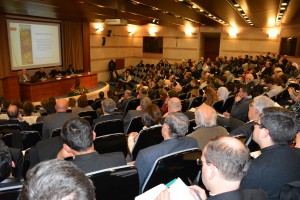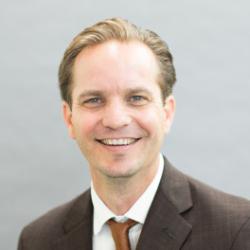The discussion is certainly on-going among the 220 opinion leaders who attended and spoke at Acton’s December 3 Rome conference In Dialogue with Laudato Si’: Can Free Markets Help Us Care for Our Common Home?
The Institute’s Rome office had hoped that the “dialogue” would continue well past the conference itself – within the Vatican, its pontifical universities and mass media – after heated discussion erupted over what is magisterium and debatable opinion in encyclical letters. When discussing environmental issues treated by Francis in Laudato Si’, questions focused especially on technical matters related to economics and the material sciences as well as calling into question the expert secular counsel the Vatican often seeks to inform itself in areas of prudential judgment.
One of the panelists invited to the debate, economist Philip Booth of England’s St Mary’s University and Institute of Economic Affairs, was particularly outspoken about the pope’s own criticism of the financial industry and so-called manipulation of global food prices.
Following the conference, Booth publish an op-ed based on his controversial conference lecture “Commodity Speculation: Part of an Economy that Kills?” titled Food Prices: Financial Speculation is a Red Herring. In his article, Booth writes,
Pope Francis has frequently described the present global financial system as an “economy that kills”. He often specifically criticises speculation on food prices. Addressing the UN this year, he said: “Beginning in 2008 the trend of food prices has changed: doubled, then stabilised, but always with higher figures in comparison to the preceding period… We cannot overlook financial speculation: for example, the high prices of wheat, rice, corn, soy, which fluctuate on the stock market, perhaps they are linked to profits and, therefore, the higher the price the greater the profit.”
Yet wheat prices today are more or less the same as in 2005, 1995 and 1985. In real terms, food prices have been falling for a long time. It is factually incorrect to say that their prices always stabilise at higher levels. And it is difficult even to think of a mechanism by which prices can be driven ever higher by speculation. There are two sides to any trade. One side benefits from the price going up and the other side benefits from the price going down. There is no net gain to speculators from prices going up, just a different distribution of gains.
It is worth noting in passing that the system that Francis calls an “economy that kills” is responsible for the most rapid reduction in poverty and the fastest increase in life expectancy that the planet has ever known. Global inequality has fallen too. But the growth of free trade, which has linked a large number of previously very poor countries to global markets (and often protected them from localised harvest failures), has also led to a huge increase in cross-border finance which can be linked to speculation on commodities.
It is worth noting in passing that the system that Francis calls an “economy that kills” is responsible for the most rapid reduction in poverty and the fastest increase in life expectancy that the planet has ever known. Global inequality has fallen too. But the growth of free trade, which has linked a large number of previously very poor countries to global markets (and often protected them from localised harvest failures), has also led to a huge increase in cross-border finance which can be linked to speculation on commodities.
Continue reading Philip Booth’s article


